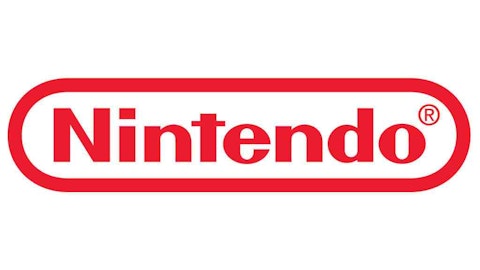Most of the technology titans have already reported financial results. The landscape is changing at extremely rapid rates, and now more than ever before, investors have to be agile.
The tech giants as a whole
 Source: Ycharts
Source: Ycharts
So the past earnings season has been extremely interesting. The above chart depicts the price increases in the past month that we have seen. Why did Apple Inc. (NASDAQ:AAPL), and Facebook Inc (NASDAQ:FB) perform so well? Why did Intel Corporation (NASDAQ:INTC) bomb so badly?
Apple guidance was the key

The guidance that was provided by Apple Inc. (NASDAQ:AAPL) was good because the sales figures were slightly higher than the ones in the previous year. This, of course, is only possible if the management team believes that it can ship all of its next-generation products on time. If it cannot do this, then obviously it will miss. The guidance had a favorable impact on sentiment, and we could be due for a surprise as a lot of customers may make the switch to an iPhone.
Phone contacts are going to be ending, and this could be the quarter that Apple Inc. (NASDAQ:AAPL) gets to switch Android loyalists to the iPhone. Remember, the iPhone wasn’t on Sprint Nextel Corporation (NYSE:S), and T MOBILE US INC (NYSE:TMUS) until recently, and with older contracts ending, there is still some pent-up demand.
Can we justify owning Facebook?
Facebook Inc (NASDAQ:FB) jumped by an astonishing 40% the past month. I have been a permanent bull on the company for a while. It doesn’t always make sense to others that I am a growth investor. I believe in the future, but I also believe in value investing. How can you believe in the future and look for undervalued stocks at the same time? The short answer is to look for stocks that are less valuable than what others perceive them to be in the future.
Going into the quarter ,no one was expecting Facebook to beat analyst expectations by 28.5%. The stock is undervalued because investors had the prevailing notion that monetizing mobile isn’t very feasible. But with Facebook Inc (NASDAQ:FB) launching advertising within a user’s news feed, the company was able to counter the negativity surrounding its strategic shift to mobile.
But it doesn’t necessarily end there. Facebook operates at ridiculous economies of scale and currently has 819 million mobile monthly active users. Technically speaking, running a website doesn’t really require that much. The beauty of a social network is that there are no content costs as users do all the generating. Companies like Yahoo! Inc. (NASDAQ:YHOO) and Netflix, Inc. (NASDAQ:NFLX) have to purchase content to attract users, but Facebook Inc (NASDAQ:FB) doesn’t have to.
Operational expenses may continue to fall as the cost of servers has gone down significantly in the past couple of years. In fact, building a super computer that can handle the data of 819 million mobile users is far cheaper than it has ever been before. Those geniuses at Intel Corporation (NASDAQ:INTC) are brilliant. Facebook went from a negative 69% gross margin to a positive 31% gross margin. While we can’t blame all of Facebook Inc (NASDAQ:FB)’s success on gross margins due to servers, there’s no denying that data-center costs have fallen significantly over the past couple of years.
Research and development costs fell, and never should have been so large in the first place. Technology companies have to spend their research and development budgets intelligently. Smart spending is all about finding world-class talent and pushing them into positions of responsibility. Smaller teams tend to do most of the heavy lifting. The best strategy for innovation has been to keep teams small, and find the best talent. Talent will multiply profits.





